Daimler Buses and its service brand Omniplus have created a mobile 3D printing center for the decentralized production of spare parts in order to be able to provide bus customers with replacements more quickly. The “mini-factory” in the form of a container includes all of the stations relevant to the production of spare parts using a 3D printer on an area of only 36 square meters. The twelve-by-three-meter container can be transported by truck to any location. Once there, only electricity and an internet connection are required for its operation.
The pilot project in Hamburg
The pilot container from Neu-Ulm will be in operation at the BusWorld Home (BWH) service center in Hamburg. Along with a range of services for Mercedes-Benz and Setra buses, the Hamburg service center will be able to quickly produce spare parts in-house. Physical transportation routes are thus further reduced and the spare part is at the customer’s site even faster. Thanks to the expertise of BWH Hamburg in the field of painting, the spare parts can be refined directly, according to customer requirements. Daimler Buses is thus setting up a further production facility for 3D printed spare parts at the BWH Hamburg – in addition to the internal industrial 3D printing center in parts production in Neu-Ulm.

“Thanks to the mobile 3D printing center, we can exploit the advantages of 3D printing to a greater extent and further increase the speed at which we supply spare parts. Decentralized production of parts as required avoids warehousing costs and reduces transportation routes. Thus, 3D printing not only allows us to react fast, flexibly, and economically to customer requirements but also improves our ecological footprint for the production of spare parts,” said Bernd Mack, Head of Customer Services & Parts at Daimler Buses.
Industrial 3D printing in 12X3 meters
The mobile container is equipped with a top-quality industrial 3D printer that produces 3D printed products to the same quality as other genuine parts. Therefore Daimler Buses is the first provider that can deliver series-production quality using a mobile solution. The 3D parts are additively manufactured using high-quality polyamide and meet the production standards for injection-molding and deep-drawn parts as stipulated by Daimler AG.
Manufacturing on Demand
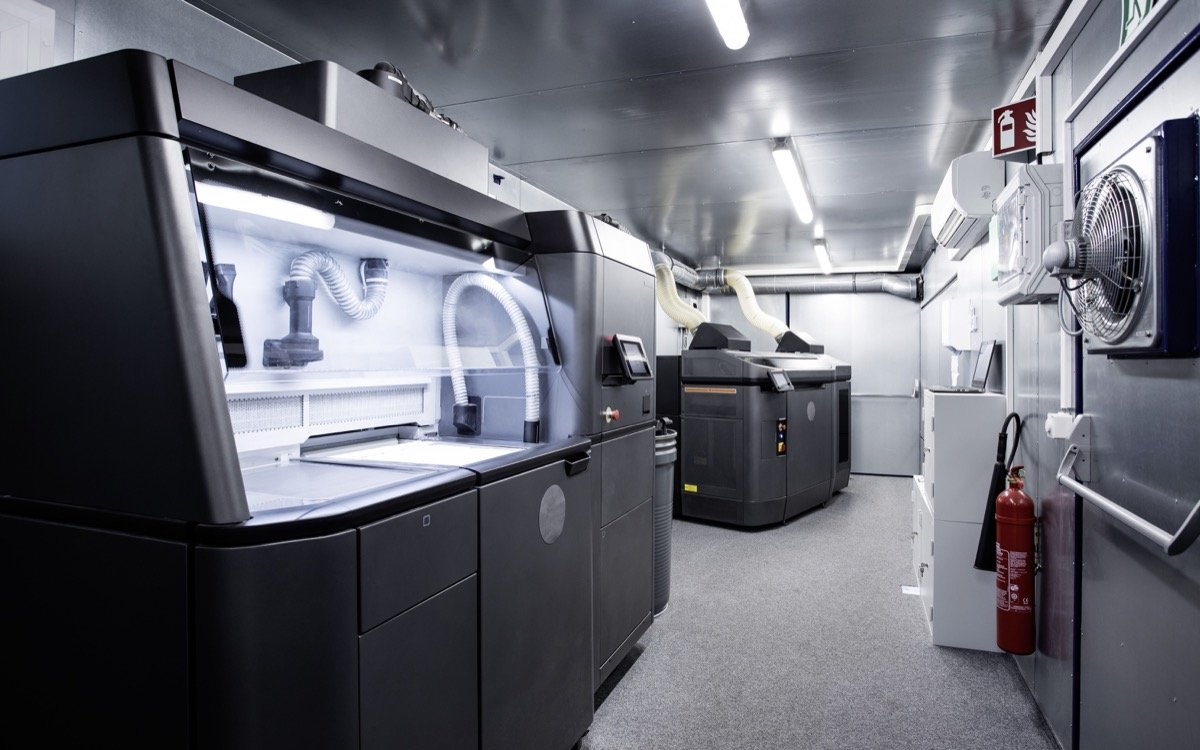
The 3D printing data is prepared at a CAD workstation prior to the printing process. The required powder is prepared at a processing station where the printed spare part is also freed from residue powder in a final step. A blasting system and an air compressor are located in an adjacent room: the blasting system smooths the surface of the component parts for a perfect finish. Here, the printed spare parts can also be painted in a limited range of colors. The compressor provides the systems with compressed air. The container is also equipped with an industrial vacuum cleaner, an air filter and an air conditioning system.
From physical to digital warehousing
Using 3D printing Daimler Buses can react fast and flexibly to urgent customer requirements, for example when customers order rarely required parts or have special requests. Instead of a wait of several weeks as for conventional spare parts, production and delivery of a 3D printed part take only a few days. Just under 40,000 bus spare parts are already 3D printable today.
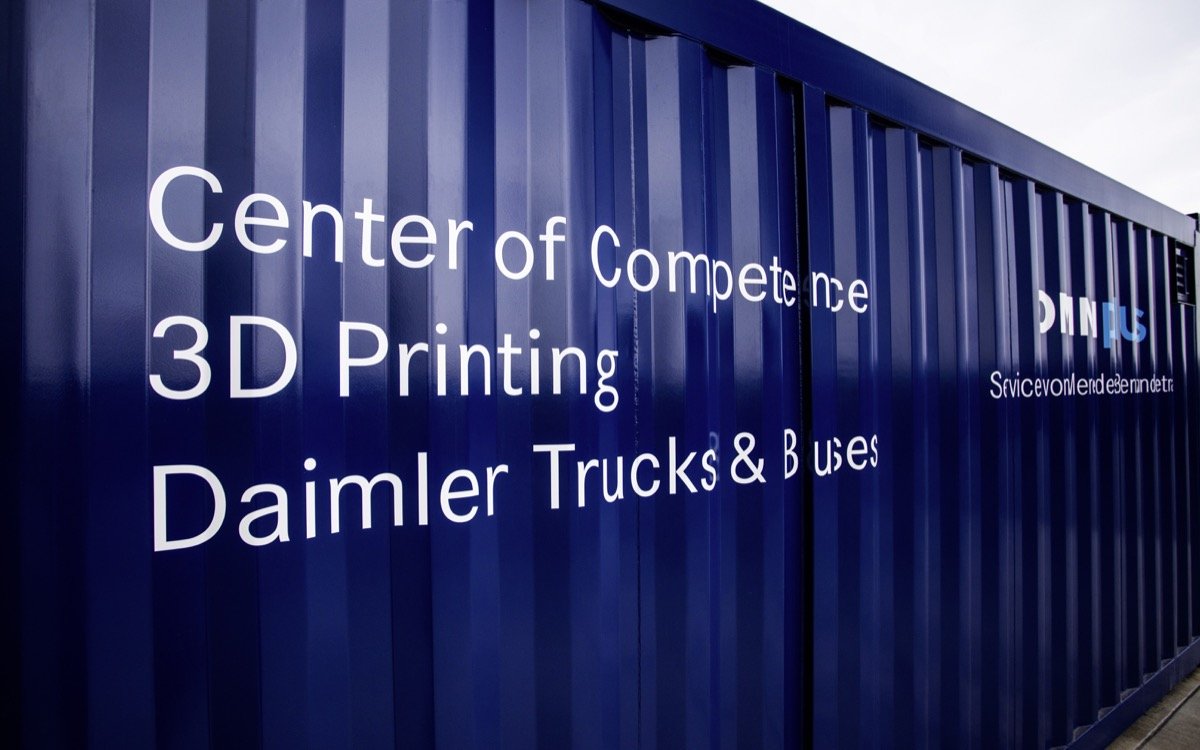
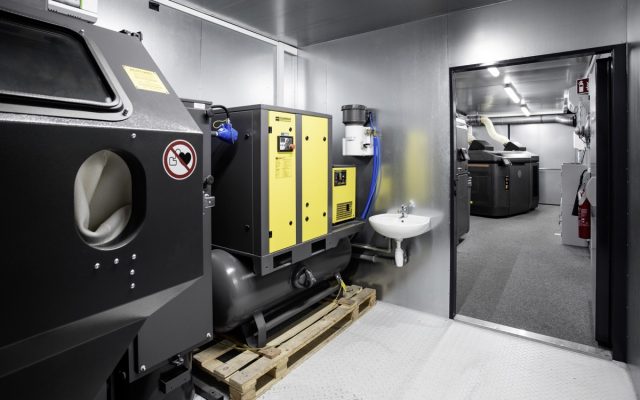
The mobile printing centre in the form of a container includes all of the stations relevant to the production of spare parts using a 3D printer on an area of only 36 m2.
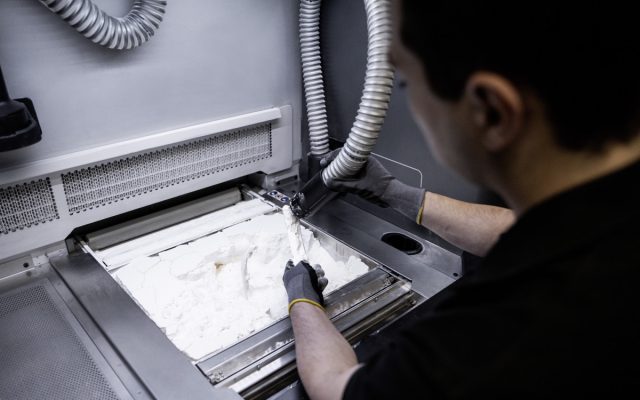
The required powder is prepared at a processing station where the 3D printed spare part is also freed from residue powder in a final step.
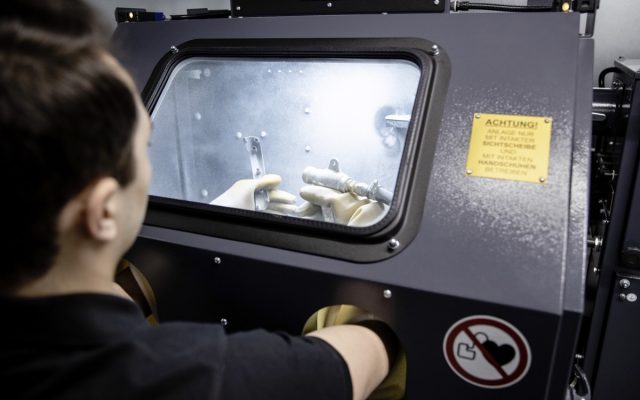
A blasting system, located in an adjacent room, smooths the surface of the component parts for a perfect finish.
Ralf Anderhofstadt, Head of the “Center of Competence 3D Printing” at Daimler Buses and his team are currently focusing on around 7,000 parts that are being successively digitized. Some of these are already available only as 3D printed spare parts after having undergone the relevant digitization steps, approval processes and numerous product tests and are stored in the “digital warehouse” together with the necessary printing information.
In the next step, Daimler Buses intends to further expand and decentralize the business model: customers will then be able to purchase 3D printing licenses from the “commerce” section of the Omniplus On portal and have the corresponding parts produced in a 3D printing center certified by Daimler Buses. As printing centers of this kind are still uncommon, these mobile mini-factories represent an expansion of the planned business model.
* This article is reprinted from 3D Printing Media Network. If you are involved in infringement, please contact us to delete it.
Author: Victor Anusci

Leave A Comment